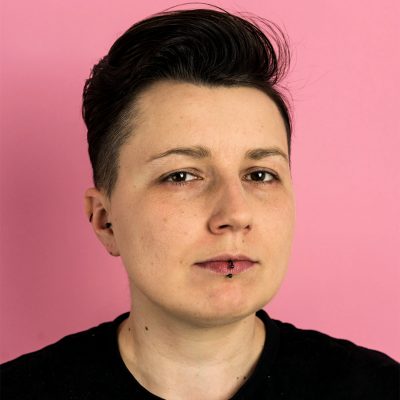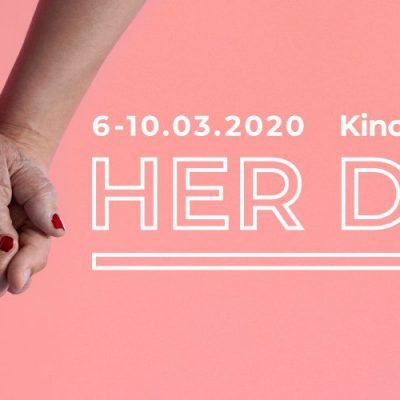Details
Article
Similar to the experience of many, the arrival and severity of the Coronavirus came out of left field for me. On the 4th of March 2020, I had taken the train to Amsterdam for a meeting of TranScreen, the Amsterdam Transgender Film Festival. We had a laugh about my new hand washing techniques and were apprehensive about hugging each other, but then proceeded to have a meeting squished around a table that was too small to host our crew and made plans for our festival that would take place at the end of May. At the time, nobody knew this would be the last time we would get together with the whole core group. Even further from anybody’s expectations, was the fact that we would have to decide to cancel the festival only two weeks later. On the 20st of March, I had to share the disappointing news with our community in what has been the hardest Facebook update I have had to write.
Lockdown Mindset
From the moment we, the core group, had decided to cancel the festival, we completely switched our mindset. We decided to, from now on, focus on what was still possible. All our attention and time went into the digital options and our social media channels. Since 2018, I have managed the social media channels pretty much independently. However, the unique situation gave birth to a new phenomenon: social media meetings. Once every two to three weeks, we would gather digitally to discuss the plans regarding our social media planning for the next couple of weeks.
Since we are a film festival that focusses on transgender and gender diverse stories, the majority of our followers identifies with the T or any of the other identity markers within the broader LGBTQI+ community. In daily life, this community is already vulnerable. Transgender people, on average, have to deal more often with unemployment, an unsafe atmosphere at work, an unhealthy or nonexistent relationship with family, mental health issues, suicidal thoughts, and verbal and physical violence. The expectation was that the Dutch ‘intelligent lockdown’ might hit this community extra hard. This was our main motivator to put all our energy into our social media channels and work to stay in touch with our community. We were happy to find out we weren’t the only ones. For example, TNN, Transgender Network in the Netherlands, was working on possible events within the constraints of the corona measures. The central support point ‘LHBTI+ steun’ (LGBTI+ support) was launched. There was a drive amongst the different organizations to support the community, which TranScreen wanted to contribute to.
We decided on a lockdown upload schedule with two or three posts a week that fit within the categories of ‘sport/health’, ‘film tips’, and ‘news from the transgender community’. While the category ‘film tips’ might seem obvious for a film festival, we have always also shared important news updates from within the trans community. The additional focus on sport and health came from the realization that within the lockdown, people might need an impulse to stay healthy, both physically and mentally.
To keep up with this increase in uploads, we had a biweekly meeting to discuss our online community building activities. This way, we stayed in touch as a team, we could check in on each other, and we could positively contribute to community building in these times of Corona.
Educational Period
In the months from March to July, we didn’t just contribute to the welfare of our community in these tough times. It was also a time period in which we learned what sort of social media posts gain a lot of interest. Because we were posting more regularly, we could map this out more clearly. Not only do regular updates positively inform the algorithm and do correct hashtags actually work, there is also a clear trend amongst the sort of posts that garnered a lot of attention.
It was the more personal updates with character that would gather a lot of enthusiasm and interaction from the community. In the case of TranScreen, it was the posts in which we, as a team, shared something personal. We added, for example, a personal and creative touch to our yearly IDAHOT (International Day Against Homophobia and Transphobia) post. While brainstorming, someone came up with the idea to each take a creative picture with one of the acronym’s letters. One had the idea to use face paint, another photoshopped themselves into a letter, while I dug up an old mirror from my attic to create the letter O. While this took more time and effort, it also resulted in a lot more interaction than our posts usually get. Especially on Facebook, this difference was notable, since their algorithm is mainly focused on this interaction and posts get more promotion when there is more interaction, such as likes, responses and shares. But on Instagram and Twitter we could also see an increase in responses. On these two platforms, the timely hashtags, such as #IDAHOT and #IDAHOBIT, contributed to the reach of the posts.

Additionally, we decided to use the date of our cancelled festival to share a special social media post. In the week leading up to the Pentecost weekend, every member of the core group submitted a short video, which I then edited into a video in which we all introduce ourselves to the community. Even though some of us are familiar faces within the transgender and LGBTQI+ community, there are also some new and lesser known people in our team. Traditionally, our opening night is the moment to introduce the team. In the absence of a festival, we found a digital alternative.
Looking for Possibilities
This seemed to be the slogan for many organizations in these months; the question of what might still be possible. What can you do, as an organization, within the restrictions that have been put out in order to keep the Coronavirus under control? Of course, this was the question we kept asking ourselves within the organization of TranScreen as well. Because we are a relatively small organization that is run entirely by volunteers and that suffers from chronic money shortages, we do not have the possibility to pay for expensive solutions necessary for online alternatives. But luckily, our partners do have that money!
From the end of July to the beginning of August, we traditionally have Pride Amsterdam. Normally, this means many parties, activities and, of course, the world famous Canal Parade. Even though all this wasn’t possible, Pride Amsterdam still wanted to be boldly present this year. Within a short timeframe, they managed to set up a television station, in collaboration with Salto TV, which had a 24/7 broadcast of Pride TV. The airtime was divided amongst the various Pride committees. Since we have been partners with Trans Pride for years, we were assigned a 45 minute timeframe by them to fill in. We decided to stick with our founding principles: using films as a means to start a larger conversation about more difficult topics around transgender and gender diverse issues. In a matter of weeks, our team picked a film, elaborated on the central theme and arranged a panel.
The honor was mine to moderate this panel live on television, on behalf of TranScreen. On July 26th, I walked into the Amsterdam public library, a bundle of nerves, ready to enter the television studio that was built there for the two weeks of Pride TV. While I am no stranger to moderating, doing so on live TV while following the director’s cues on where to look at what moment, made it a unique challenge and experience. Thanks to our partners Trans Pride and Pride Amsterdam, we were able to share a film and consecutive discussion regarding transgender representation in media. We received a lot of positive feedback, both online and via personal messages. Not only did thousands watch the panel live via Salto TV and the livestream, we garnered a lot of additional views when we shared the panel on our YouTube channel.

Looking Forward
What’s next? How can we, as an organization, look forward, search for hope on the horizon? Nobody knows what the future brings, so this remains a difficult question. As for TranScreen, we keep searching for the possibilities. As such, we recently organized a VrijMiBo (Dutch term for an informal drink on Friday after work) via ZOOM to offer an online alternative for the lack of social interaction. The engagement and responses of the participants showed us that there still is a need for online interaction.
Additionally, thanks to our partner Filmtheater Kriterion, we were able to present the film ‘Sworn Virgin’ in december. At that moment, a maximum of thirty people was still allowed to share a space. Despite the limitations, the screening was sold out. Afterwards, various visitors shared how the film touched them, including people that had not previously heard of TranScreen. Only two days later, Kriterion had to close its doors again, due to new tougher regulations.

When the circumstances allow for it, we hope to travel through the country once more to record new episodes for the TranScreen Podcast.
We have multiple compelling guests planned, but for now we have to be patient and wait until it is possible to have an in person round-table discussion. We have decided that, currently, this is irresponsible. Therefore, our recording sessions are canceled until further notice.
And we look forward to the future with the organization of TranScreen. We have planned a new festival come summer, from the 13th until the 16th of May. Obviously, we hope to return to Kriterion and Club Jaco for films, Q&A’s, debates and workshops. Since no one knows what the future will bring, we have decided to plan for a hybrid festival that partially takes place in Amsterdam and will partially be online. Thus we have the flexibility to continue the festival, if we, unexpectedly, need to cancel the in-person portion of the festival. Whatever will happen, it is promising to become an unforgettable festival. A speck of light on the horizon.
Want to know more about TranScreen?
Visit our Facebook or website.
You can also find us on Instagram, Twitter and YouTube.
Additionally, we have a podcast, which you can listen to via Soundcloud and Spotify.
Want to learn more about the transgender community?
Take a look at the website of TNN, the Transgender Network in the Netherlands, to learn more. On their website, you can also find multiple studies that have been done regarding the discrimination of transgender people.
Valentijn de Hingh writes for the Correspondent about many subjects, including personal stories from her own perspective as a transgender person. For example, this story in which she introduces herself.
The filmmaker collective the Transketeers creates video portraits of transgender people in the Netherlands. They also have the YouTube series ‘The Naked Truth’, in which they answer uncomfortable questions with their chest bare.
If you prefer your content in English, you can take a look at the videos made by Fox Fisher. Together with his wife Owl, he makes vlogs and films with and about transgender people.
Trans United Europe fights for the rights of BPOC trans and gender diverse people. This organization has an international focus and currently has multiple projects they work on, including the Trans Led Health Clinic.





